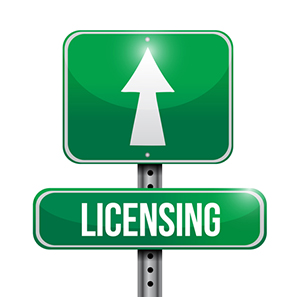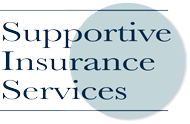 Obtaining a claims adjuster license can be the start of a rewarding career. Day-in and day-out, insurance claims adjusters help residents and business owners get back on their feet after an accident or loss. You’re on the front line with insureds, assessing the loss site, determining the scope of damage, reviewing the provisions and terms of the policy, negotiating repairs and rebuilding estimates, and much more. You are the point person in helping homeowners return to their residences, business owners to open shop again, and people to get back behind the wheel, etc. Once you have your claims adjuster license, you are well on your way to provide assistance to those in need.
Obtaining a claims adjuster license can be the start of a rewarding career. Day-in and day-out, insurance claims adjusters help residents and business owners get back on their feet after an accident or loss. You’re on the front line with insureds, assessing the loss site, determining the scope of damage, reviewing the provisions and terms of the policy, negotiating repairs and rebuilding estimates, and much more. You are the point person in helping homeowners return to their residences, business owners to open shop again, and people to get back behind the wheel, etc. Once you have your claims adjuster license, you are well on your way to provide assistance to those in need.
No matter what type of adjuster you are, your goal is to facilitate the claims process to its resolution. Getting to this point and being able to continue to do your job effectively is based upon knowledge and experience, in addition to the obligations of meeting and maintaining claims adjuster licensing requirements that will keep your claims adjuster license in good standing. This applies whether you are a staff, independent or public adjuster.
Types of Adjusters & The Licensing Process
Let’s take a look at the type of adjusters in the insurance space: There are staff adjusters who are defined as employees of insurance companies. We also have independent adjusters who are hired on a contract basis by an insurance carrier or self-insured. Firms that act as third-party administrators are usually classified as independent adjusters. Then we have public adjusters that work on a fee basis on behalf of an insured. Typically, this fee is equal to a certain percentage of the claim paid by the insurance company.
Obtaining your Claims Adjuster License
Different state licensing requirements exist for insurance adjusters, so it’s critical that you are very familiar with them. In fact, some states don’t require licensing for staff and/or independent adjusters. Take New Jersey, for example, which doesn’t offer an independent or staff claims adjuster license so an adjuster can adjudicate claims without a license there. But it’s not so straightforward if you plan on working outside of New Jersey, in other states.
What’s important in the claims adjuster licensing process is to understand your home state’s requirements, including how a home state is defined, as it can be different from one state to the next. Is your home state defined as the state in which you reside or is it any state which you have a claims adjuster license and declare it as your home state? Additionally, does your home state recognize if you are licensed in one state and want to work in another state that requires claims adjuster licensing? You’ll have to select a designated home state (DHS), which qualifies you for claims adjuster licensing purposes and allows you to designate this non-resident state as your “home state”. You are then required to complete the resident licensing requirements in the state you select, which may include filling out an application, paying a fee and passing a state-specific exam before the non-resident claims adjuster license is issued.
Additional Requirements for Claims Adjuster Licensing
Also, some states require a pre-test course of study and have continuing education requirements. For example, there are states that require continuing education for independent and staff claims adjuster licensees, while others have requirements just for staff adjuster licensees. Still other states may waive or reduce the amount of continuing education required based on the experience level of the licensee or professional designations that the licensee has earned. How will this affect your claims adjuster licensing requirements when looking to become licensed in multiple states? You need to know.
Moreover, there is a great deal of paperwork involved in licensing, which can result in an application getting rejected due to a technicality. You have to ensure that everything is completed properly, including providing any required accompanying documentation, such as fingerprints, that should be sent along with an application. Also, be sure if fingerprints are required that the state’s department of insurance will accept the source of the fingerprints before obtaining and submitting them.
In addition, be sure you understand your exam requirements. Some states may waive the exam requirement if you are designated as an AIA or CPCU, or if you have a certain amount of adjusting experience.
In terms of licensing for public adjusters, again, depending on the state, there are also specific licensing requirements. In some states, to initially obtain a claims adjuster license, an individual must have up to a specific number of years of experience in the insurance adjusting field, get bonded by an admitted surety, complete an application, provide fingerprints, and take an exam. Public adjusters, depending on the individual state, also have to submit experience certification. For example, in New York, a first-time applicant for a public adjuster license must either present a school certificate from a New York approved Pre-licensing Course Provider or from the New York State Dept. of Financial Services Licensing Bureau Statement of Employer form, attesting that he or she has been regularly employed by a licensed insurance company for not less than one year during the three years preceding the date of application, and has been employed in responsible insurance duties relating to the involvement of sales, underwriting or claims. The Statement of Employer must be signed and attached to the application upon submission. The applicant must also pass an exam, be fingerprinted, and pay a licensing fee.
As you can see, there’s a lot to know, which makes the claims adjusting licensing process quite daunting. Also, getting the proper claims adjuster license is the first step, maintaining the claims adjuster license and staying in compliance is also critical to be able to continue to work.
Call the Claims Adjuster License Experts
Supportive Insurance Services can help you with your claims adjuster licensing requirements and the entire process. That’s what we do. For information regarding your insurance licensing needs, feel free to contact us at (317) 257-5734 or fill out the form below.
Disclaimer: The insurance licensing information provided on this blog is not legal advice and the reader is advised to consult an attorney for questions regarding the legal ramifications of this information.
